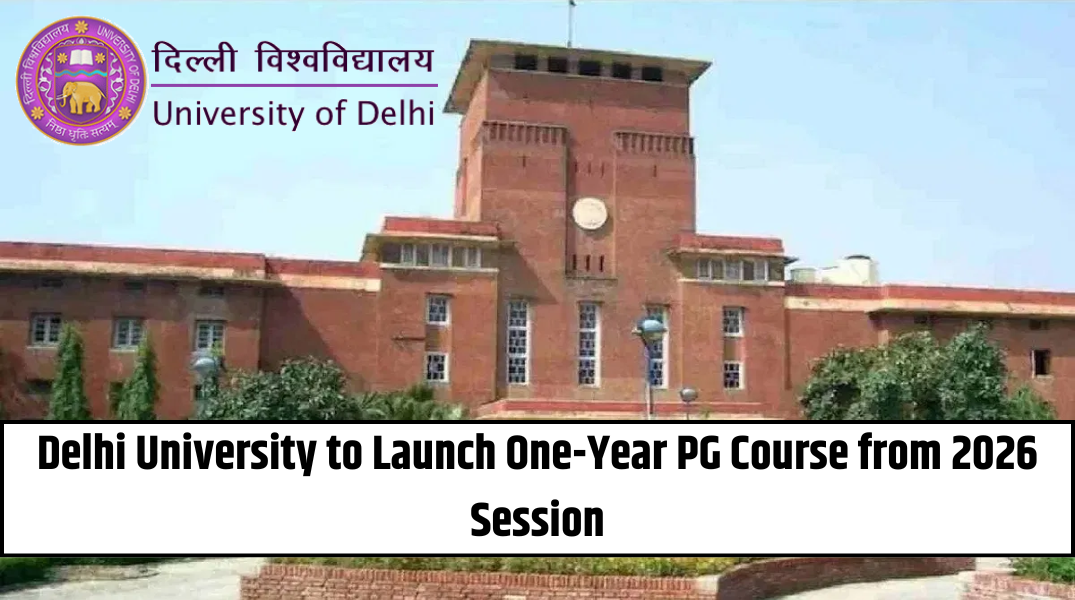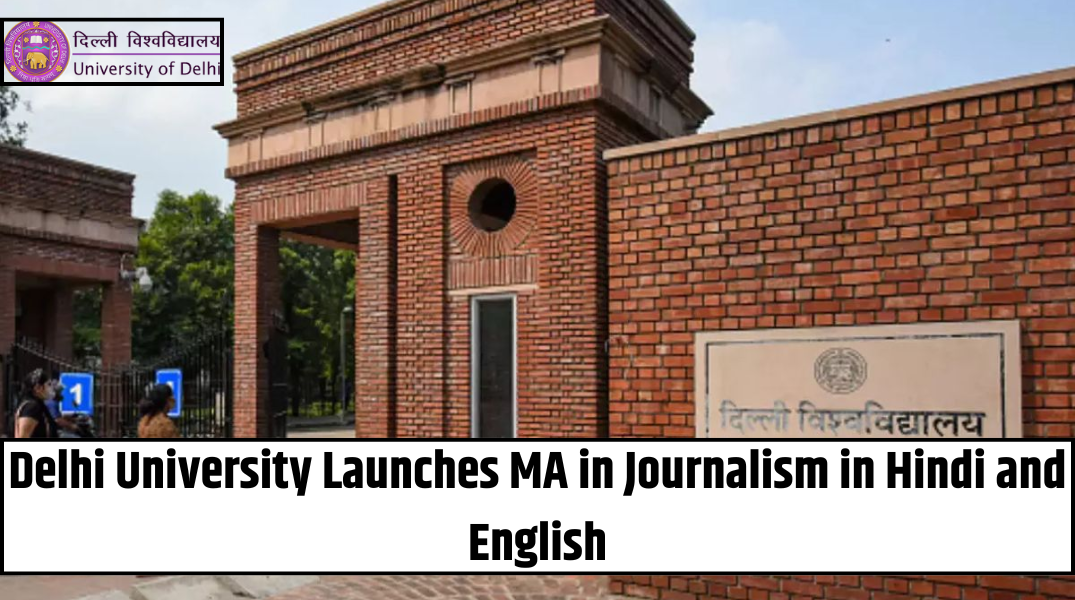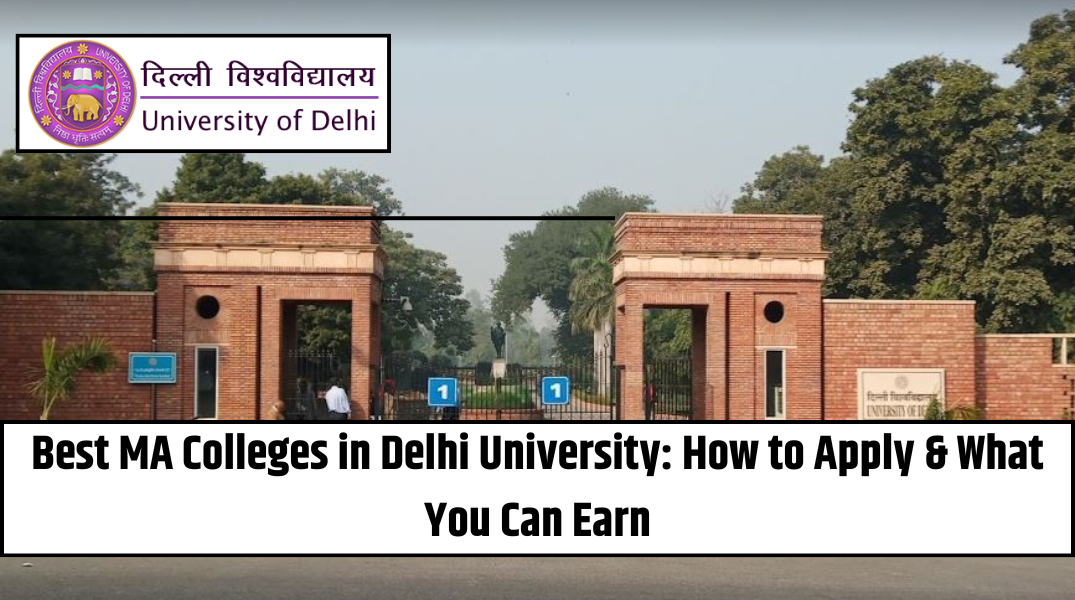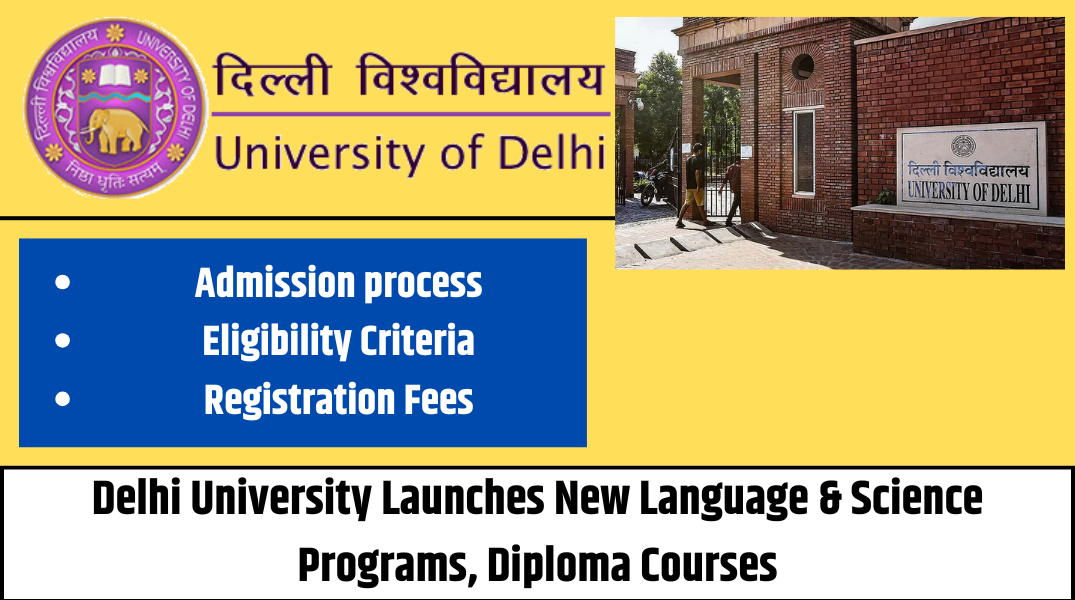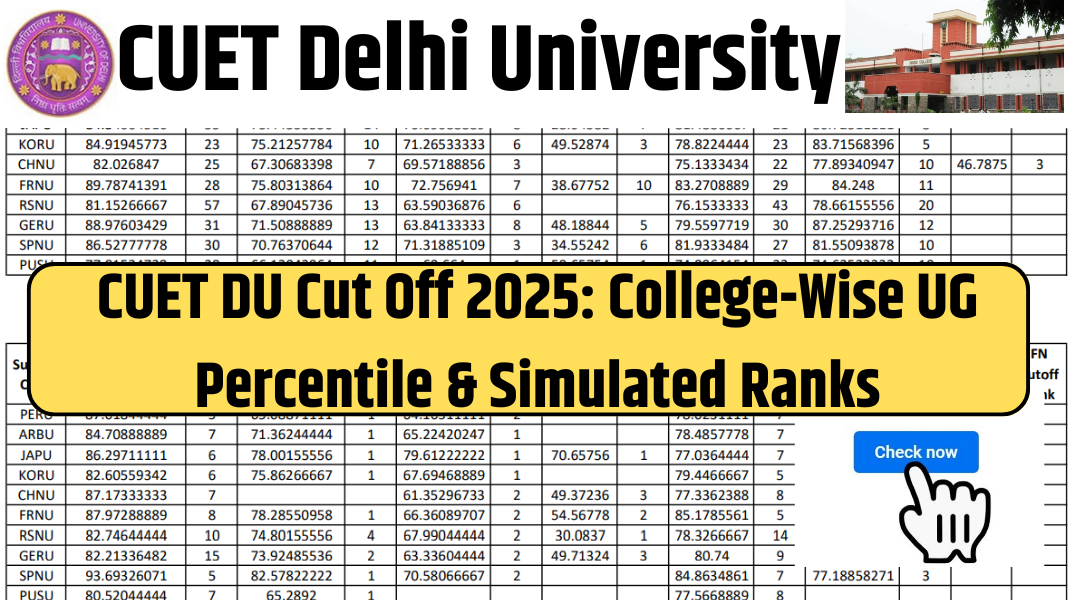In a major shift aligned with the National Education Policy (NEP) 2020, Delhi University (DU) is set to roll out a one-year postgraduate (PG) program starting from the academic session 2026. This initiative marks a significant change in the structure of higher education, streamlining postgraduate studies for students who complete the new four-year undergraduate program.
One-Year PG Program: What’s Coming?
According to early reports, a draft proposal outlining the implementation of the one-year PG course will be presented for discussion at DU’s Academic Council meeting on December 27. If approved, it could reshape the traditional academic journey by replacing the standard two-year format for many students.
This proposed structure is based on the Curriculum and Credit Framework for Postgraduate Programmes issued by the University Grants Commission (UGC) under NEP 2020. The one-year PG will only be open to those who have completed a four-year undergraduate honors program, thereby rewarding students with an accelerated academic route.
How Will This Work?
-
For 4-Year UG Degree Holders: Eligible for the new 1-year PG program
-
For 3-Year UG Degree Holders: Continue with the existing 2-year PG program
Also Read – Delhi University Admissions 2025-26: Everything You Need to Know Before the Merit Lists Drop
The transition will also impact academic credit distribution:
| PG Duration | Total Credits Required | UGC Level |
|---|---|---|
| 1-Year PG | 44 credits (22 per semester) | Level 7 |
| 2-Year PG | 88 credits | Level 6.5 |
The university plans to develop separate curricula for both the one-year and two-year tracks to ensure that each pathway delivers academic depth while staying true to NEP goals.
What’s the Context?
Delhi University has already begun implementing the Four-Year Undergraduate Programme (FYUP), another reform introduced under NEP 2020. Currently, the first batch is in its third semester, and the structure offers various exit options:
-
🎓 Certificate after 1 year
-
🏅 Diploma after 2 years
-
🎓 Degree after 3 years
-
🌟 Degree with Honours/Research after 4 years
This flexible framework supports multiple academic pathways, giving students the freedom to customize their education based on their goals and timelines.
Faculty Response: Rushed or Revolutionary?
While the structural reforms seem promising on paper, not everyone is convinced. Several professors and academic stakeholders have raised concerns over the speed at which the one-year PG model is being pushed forward. Many believe the plan is being rushed without adequate consultation or piloting, which could affect academic quality, teaching load, and student preparedness.
Some experts are advocating for a transitional framework or pilot model to gather real-time feedback before full-scale implementation.
What Does This Mean for Students?
For students completing the four-year UG course, the one-year PG track could reduce financial burdens, save time, and fast-track entry into doctoral programs or the workforce. However, for those sticking to the three-year UG model, the traditional two-year PG remains the norm—for now.
Also Read – Delhi University Begins PG and B.Tech Admissions for 2025-26
Interesting Angle: How India Compares Globally
Many countries like the UK, Australia, and parts of Europe already offer one-year master’s degrees, especially in disciplines like business, social sciences, and STEM. With this move, India could be aligning more closely with global higher education standards, enhancing the international compatibility of Indian degrees.
What’s Next?
-
📅 Await formal approval after the December 27 meeting
-
📘 Expect detailed guidelines and subject-wise curricula rollout by mid-2025
-
🧑🎓 Students enrolled in the FYUP will be the first eligible batch for the one-year PG in 2026
Final Thoughts
DU’s decision to move toward a one-year postgraduate model is bold and ambitious, with potential to modernize India’s academic framework. While debate continues around implementation speed, there’s no doubt this shift could pave the way for greater flexibility, affordability, and global recognition for Indian students.
Students and educators alike should stay informed, ask questions, and participate in dialogues as DU navigates this pivotal transition in India’s academic future.
